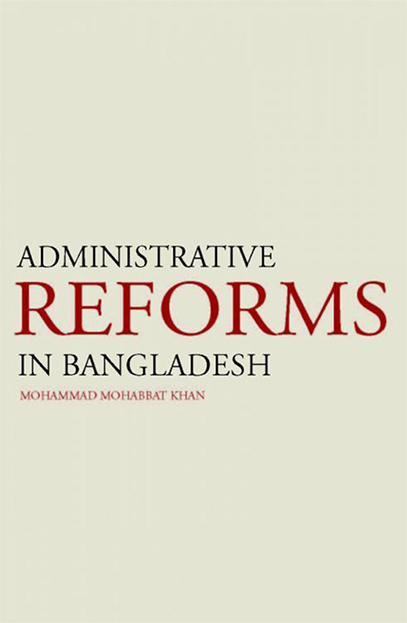- Shop
- Public Affairs & Administration
- Administrative Reforms in Bangladesh
Administrative Reforms in Bangladesh
https://uplbooks.com/shop/9789845061247-administrative-reforms-in-bangladesh-11909 https://uplbooks.com/web/image/product.template/11909/image_1920?unique=b656810
| Language: English |
Tags :
Book Info
The dominant role of bureaucracy in governance in Bangladesh is well-known. Bangladesh has been and continues to be an administrative state. The need for reforming bureaucracy was recognized even during the Pakistan times. However, all efforts to reform an entrenched bureaucracy failed to a large extent.The book describes and analyzes why major administrative reforms failed in Bangladesh, what lessons can be learned from such failure, and how major reforms can be effectuated within the civil service system of the country. Major administrative reform failures of South Asian bureaucracies have also been examined to provide a regional context of Bangladesh as the case in hand.The experiences of commonwealth countries bureaucracies in the areas of change and reforms have also been examined to show how such experiences can enable bureaucracy in Bangladesh to bring about and sustain meaningful changes to meet the challenges of the 21th century.

Mohammad Mohabbat khan
Mohammad Mohabbat Khan is a Member, of the Bangladesh University Grants Commission (BUGC). He was the senior most Professor at the University of Dhaka before joining BUGC in November 2011. He earned MPA from Syracuse University and MPA & PhD in Public Administration from the University of Southern California. He has been teaching in the University of Dhaka since 1970. He was Chairman of the Department of Public Administration at the University of Dhaka. Professor Khan did his post-doctoral research as a Senior Fulbright Fellow at Cornell University and the University of Texas at Austin. He had been a Ford Foundation Research Fellow at the Institute of South East Asian Studies, Singapore. He taught at universities in USA, Nigeria,



